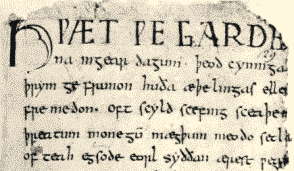Фарн уӕ хӕдзӕртты!
The interrogative-relative pronouns coincide with the English '5 Ws' ('who, what, when, where, why').
Abaev notes: "For the class of personal, definite beings: Чи 'who', for indefinite, impersonal things: цы 'what'. The demonstrative pronouns discussed in my other pronoun post can be thought of as roughly meaning 'this-what' (Ацы), ' that-what' (уыцы). The genitive form 'кӕй' also has the possessive meaning 'whose'.
Singular
'Who': 'What':
Nominative - Чи Nominative - цы
Genitive - кӕй (whose) Genitive - цӕй
Dative - кӕмӕн Dative - цӕмӕн
Allative - кӕмӕ Allative - цӕмӕ
Ablative - кӕмӕй Ablative - цӕмӕй
Inessive - кӕм, 'where' Inessive -цӕм
Adessive - кӕуыл Adessive - цӕуыл
Equative - кӕйау Equative - цӕйау
Comitative - кӕимӕ, Чeмӕ Comitative - цӕимӕ, цeмӕ
The inessive case form кӕм (from Чи) has come to have the meaning of the adverb 'where', often seen along with the demonstratives 'ам' here and 'уым' there.
The genitive form 'кӕй' also has the possessive meaning 'whose'.
The plural forms of the pronouns Чи, цы are constructed in an unusual way: by joining the plural marker -тӕ, -ты to the corresponding case form of the singular. Remember, the -æ suffix is only used in the plural of the nominative case.
Plural
'Who': 'What':
Nominative - Читӕ Nominative - цытӕ
Genitive - кӕйты Genitive - цӕйты
Dative - кӕмӕнты Dative - цӕмӕнты
Allative - кӕмӕты Allative - цӕмӕты
Ablative - кӕмӕйты Ablative - цӕмӕйты
Inessive - кӕмыты Inessive -цӕмыты
Adessive - кӕуылты Adessive - цӕуылты
Equative - NIL Equative - NIL
Comitative - кӕимӕты Comitative - цӕимӕты
If there is no modified element used with the interrogative-relative pronoun кӕцы 'which, what', it is declined like any vowel-final substantive.
The interrogative pronoun цӕвӕр 'which, what kind' is generally used as an adjective and is not inflected for case.
Indefinite Pronouns
As the name implies, these pronouns indicate that we are looking for very broad, general information, and we may not yet understand enough to speak in specific terms. These pronouns are derived from the interrogative-relative pronouns as discussed above, except the prefix 'ис-' is added to the the pronouns 'Чи, цы, кӕцы' to give the meanings 'anybody, anything, any (which)' respectively. The suffix 'дӕр' is added to the same three root pronouns to give the meaning 'somebody, something, some'.
Singular
Anybody - исчи Somebody - чидӕр
Anything - исты, from исцы Something - цыдӕр
Any - искӕцы Some - кӕцыдӕр
The pronouns исчи, исты, искӕцы are declined (inflected) like the pronouns чи, цы, кӕцы.
The pronouns чидӕр, цыдӕр in the singular add the element -дӕр to the corresponding case form (at the end of the word), but in the plural -дӕр is placed in the middle of the word, after the case ending but before the plural marker (-тӕ for nominative case, -ты for oblique cases).
Singular with case endings
Somebody: Something:
Nominative - чидӕр цыдӕр
Genitive - кӕйдӕр цӕйдӕр
Dative - кӕмӕндӕр цӕмӕндӕр
Plural with case endings
Some people: Some things:
Nominative - чидӕртӕ цыдӕртӕ
Genitive - кӕйдӕрты цӕйдӕрты
Dative - кӕмӕндӕрты цӕмӕндӕрты
The pronoun кӕцыдӕр 'some' is declined like any substantive (noun).
цалдӕр, цасдӕр 'some, several' serve as quantitative indefinite pronouns; as I understand it, 'some' in the phrase "give me some" would be implied here when used in a sentence, because the undefined object that you are asking for is likely already known to you.
The addition of the suffix '-иддӕр' to indefinite pronouns gives the meaning of '-ever', etc.
Whoever - чидӕриддӕр
Whatever - цыдӕриддӕр
Whatever (kind of...) - кӕцыдӕриддӕр
However much/many - цалдӕриддӕр/цасдӕриддӕр
To indicate specificity within a larger, general group, 'certain, some' are given as 'иуӕй-иу/иуӕй-иутӕ and гӕзӕмӕ/гӕзӕмӕтӕ.



_-_First_Ancient_Greek_.jpg)


